Tokens on Trial: Early Learnings About Decentralized Justice
The Kleros Token Curated Registry has been on mainnet for a month now. What have we found? Is it interesting? Let's find out.
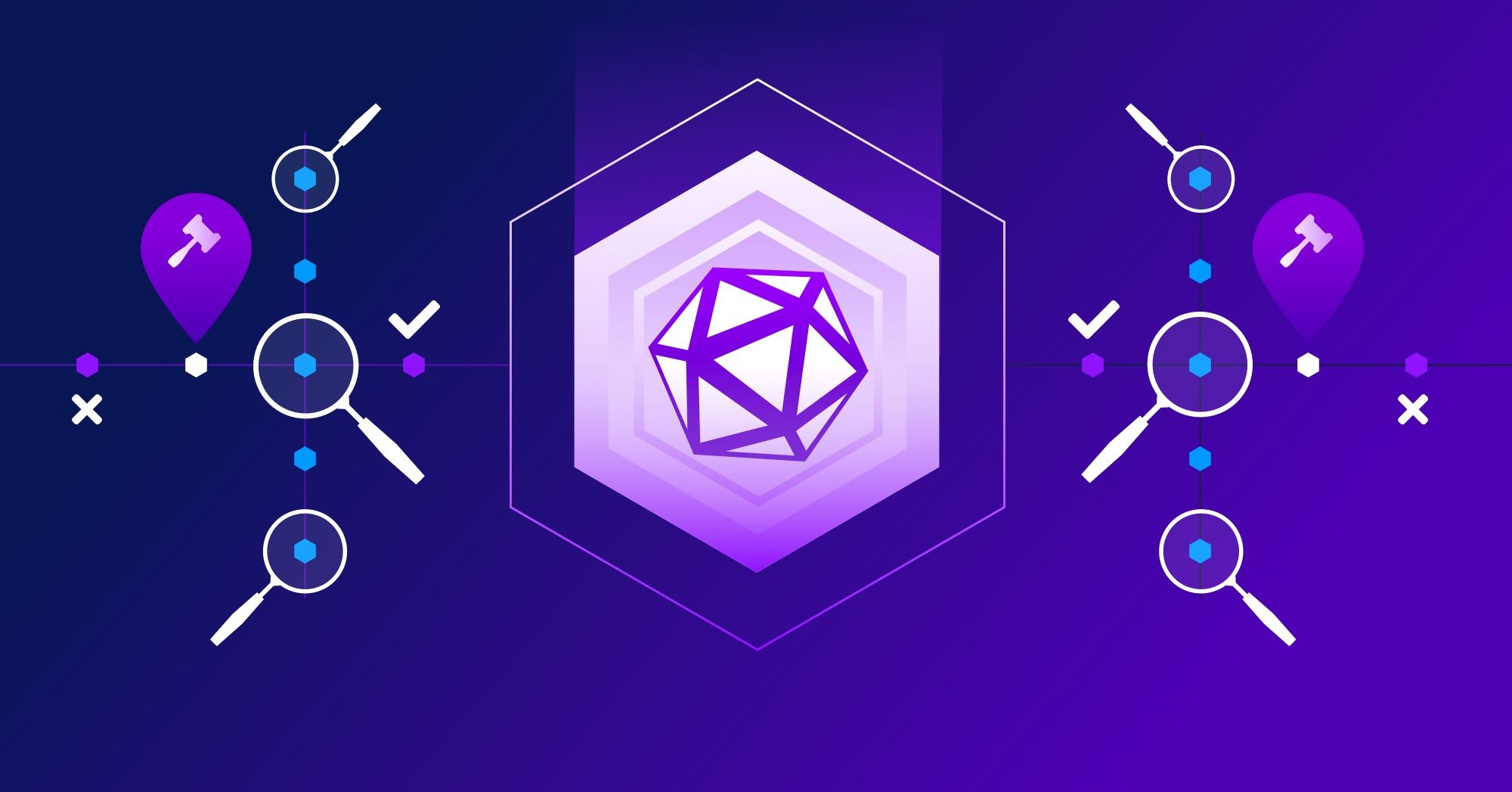
This is what we’re learning from the first ever decentralized community court...
A big problem for exchanges is to decide which tokens to list. They have to analyze one by one to filter out those that are outright scam attempts (e.g., a fake token impersonating a real one) and others that, while not scams, are from poor quality projects or not mature enough in development.
Exchanges spend a lot of time and resources on due diligence.
In March, we launched our Token Curated Registry of Tokens (T2CR). The purpose of this Dapp is to empower the community to create a decentralized list of crypto tokens, to help exchanges in their due diligence process.
Instead of having a centralized entity making all decisions, users submit tokens as candidates to be added to the list and the community decides whether they should be accepted.
To be accepted into the list, tokens must comply with some formal features (e.g., logo should have the right format, the contract address should be legitimate, etc.).
After a token is accepted, it can also apply to receive a “badge” which certifies that it also complies with some additional requirements.
Crypto exchange Ethfinex created the “Ethfinex Badge” in the list. Projects which obtain it are eligible to participate in a community vote to be listed in Ethfinex and Bitfinex exchanges.
For this, they must comply with a number of requirements concerning team, token economics and other criteria listed here.
(To learn more about how all this works, read this. Interested in also having your badge? Contact us at contact@kleros.io)
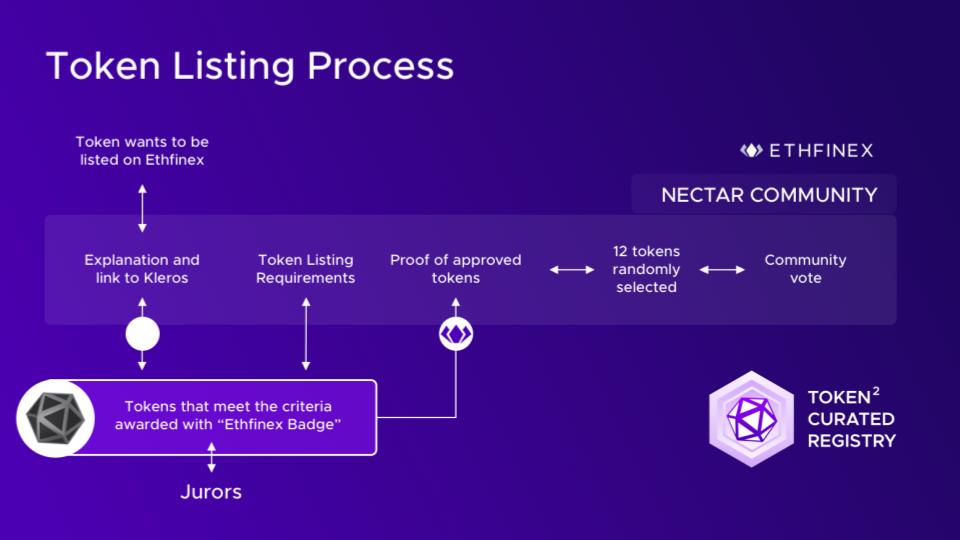
Up to April 15th, shortly more than a month after launch, there were 120 submissions to the list and 19 applications to the Ethfinex Badge.
Let’s dig a bit deeper into some interesting things we found about user behavior...
Heavily Debated Cases
Some submissions went uncontested. Others were hotly debated within the community.
The submission of the Spendcoin project was particularly relevant. After being added onto the list (accepted name, logo and contract address), it applied for the Ethfinex Badge.
Someone challenged the submission and presented a deeply researched pdf with an opinion on why he or she believed the project should not be awarded the badge.
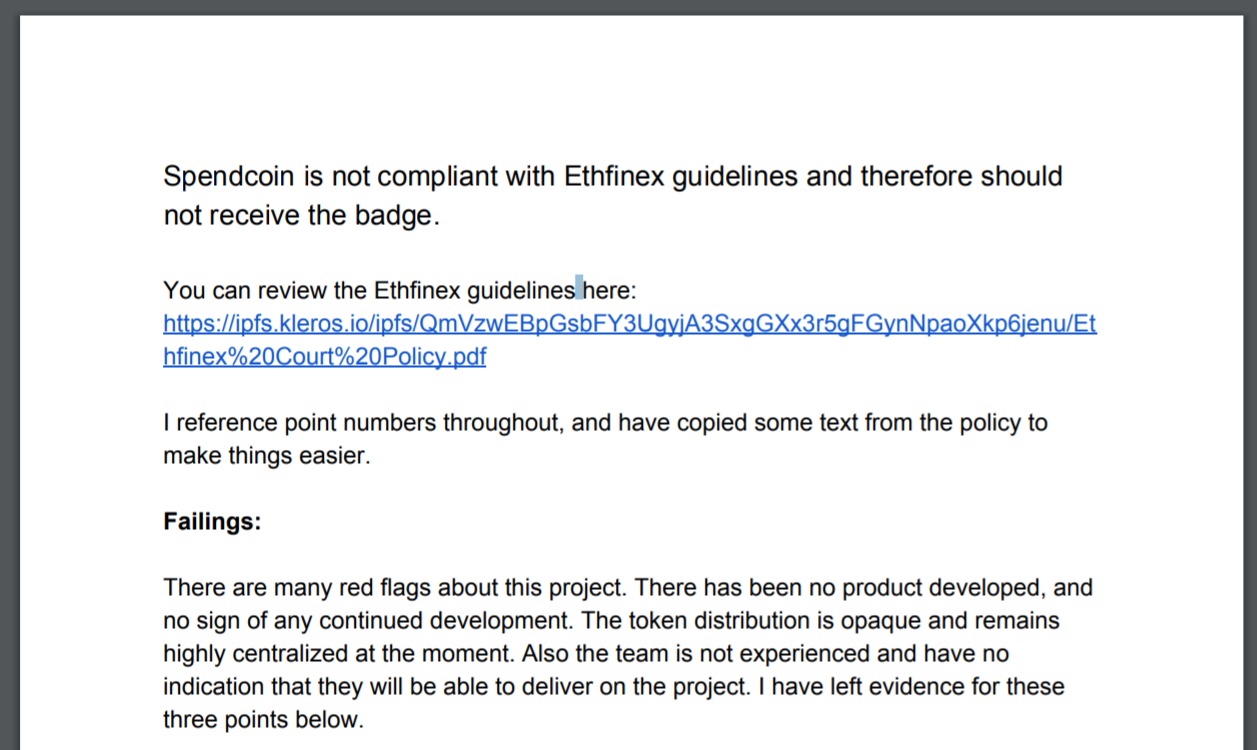
Some time later, another user (presumably, the Spendcoin team) replied with a thorough justification on why, in their opinion, the token should be awarded the badge.
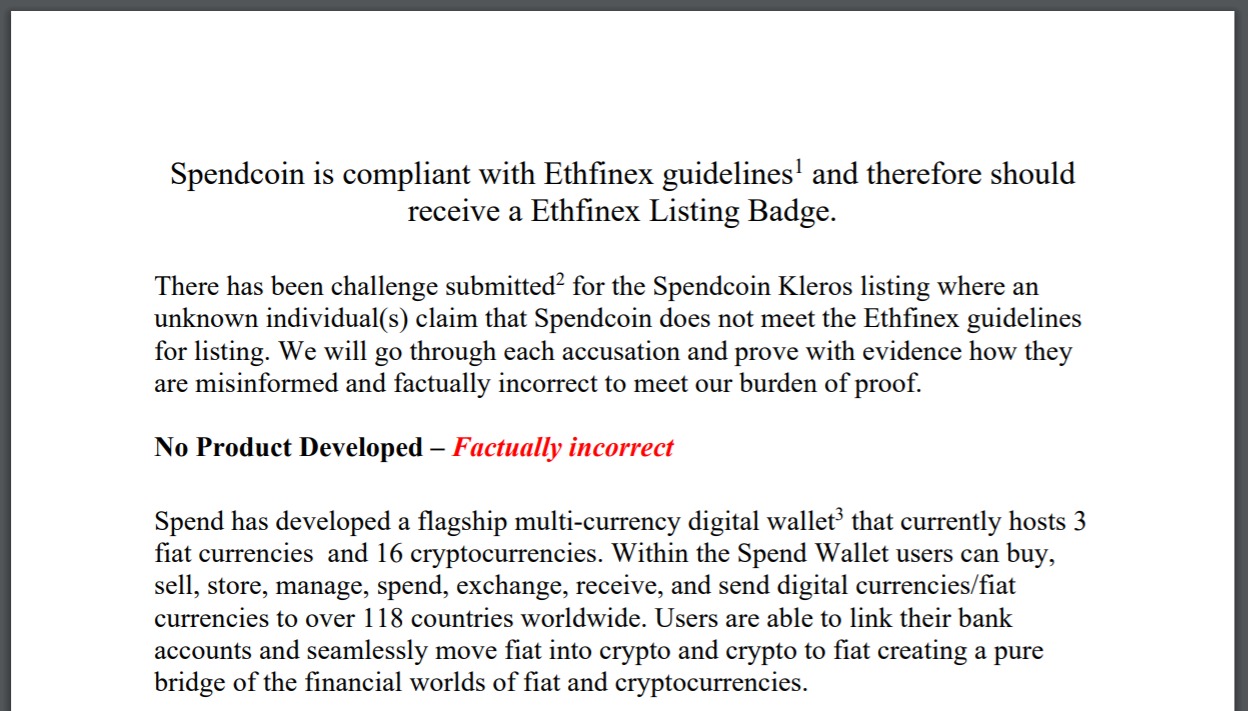
The case went to a vote, and Kleros jurors voted against Spendcoin by 5 votes to 0. An appeal was funded and Spendcoin lost again. Thus, the badge application was rejected.
A quite similar situation happened in the case of SpaceChain. Deep arguments on both sides and a dispute that went into the appeal round.
Here are some pieces of evidence: evidence 1, evidence 2, evidence 3.
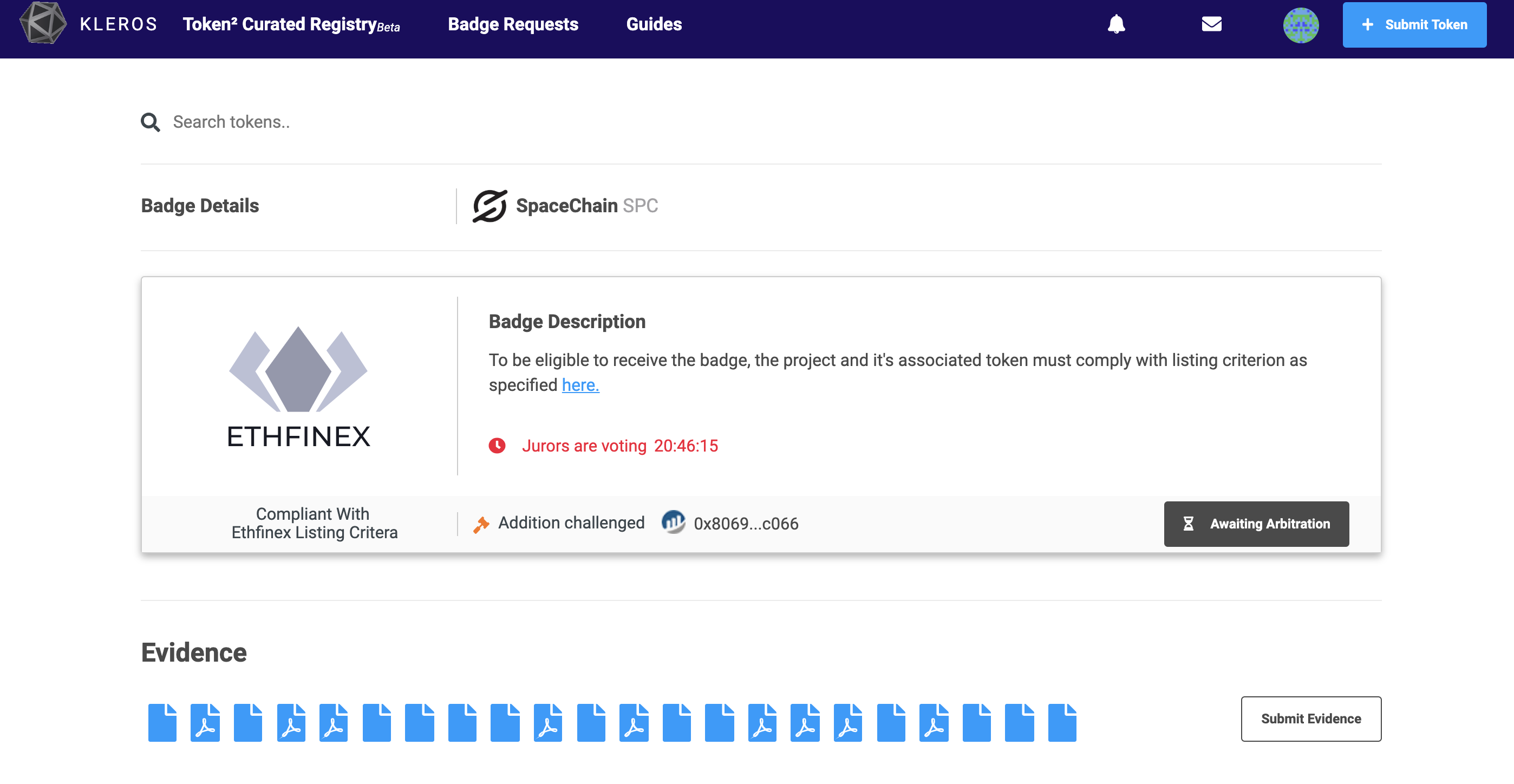
Why Crowdsourcing Matters
Crowdsourcing is the process of getting work done online from crowds. This work involves finding and processing information.
Centralized procedures, such as those traditionally conducted by exchanges, only produce limited information. Exchange managers typically only have access to the version of the story submitted by the team.
The wisdom of crowds substantially increases the amount of information available for decision making. This became clear in several instances of the T2CR, when users submitted evidence about quality of code on GitHub, data on token supply and on the quality of teams of different projects.
Secondly, crowdsourcing also increases the processing capacity of the system. If crowds generated more information but the processing capacity was static, a bottleneck would occur in decision making.
But Kleros’ cryptoeconomically incentivized hive mind system also scales the processing power with the available amount of information.
More Information + More Processing Power = Better Decisions
A Rulemaking Community
Crowdsourcing does not only add to available information and processing power. It also engages the community in rule-making as to better define how the process should work and the goals it ought to achieve.
When the T2CR product was launched, we just had some simple rules about what information was to be considered in order to have a token accepted into the list.
But even something apparently as simple as the criteria for accepting token names and logos proved to be challenging. Should a token be submitted with the name of the token (pinakion, in the case of Kleros) or the name of the project (Kleros)?
Many discussions happened on Telegram about these topics.
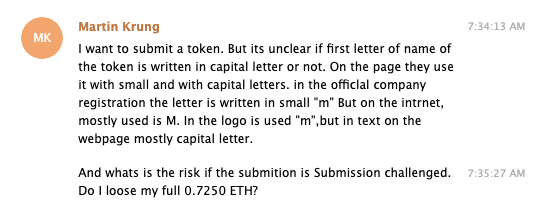
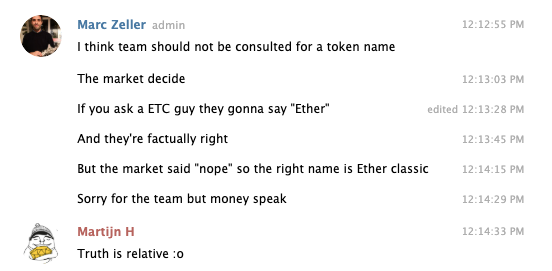
And what about the logo? Should submitted logos comply with some quality guidelines? What if an old logo was submitted?
This also was cause for discussion and for rule changing proposals in the Kleros Forum. Come and join the discussion!

You Can Also Be Part of History!
The T2CR is just in its early days. Head on over to our Tokens on Trial curated list and click on the guides in the top menu for further info.
The Ethfinex Listing Guide is a shorter more direct explainer and the TCR Guide is far more detailed and packed with stats.
Take part in real decentralized justice!

Join the community chat on Telegram.
Visit our website.
Follow us on Twitter.
Join our Slack for developer conversations.
Contribute on Github.


